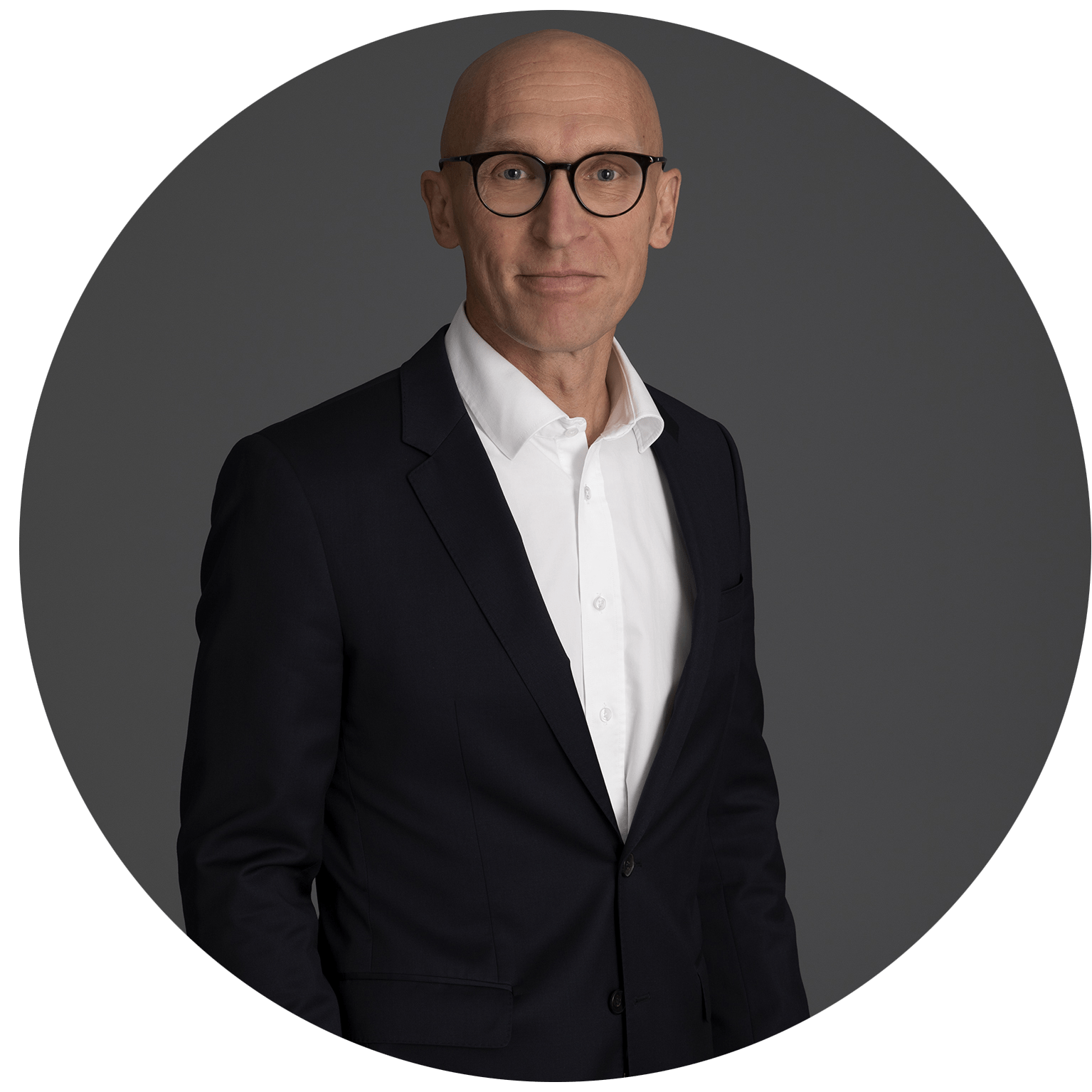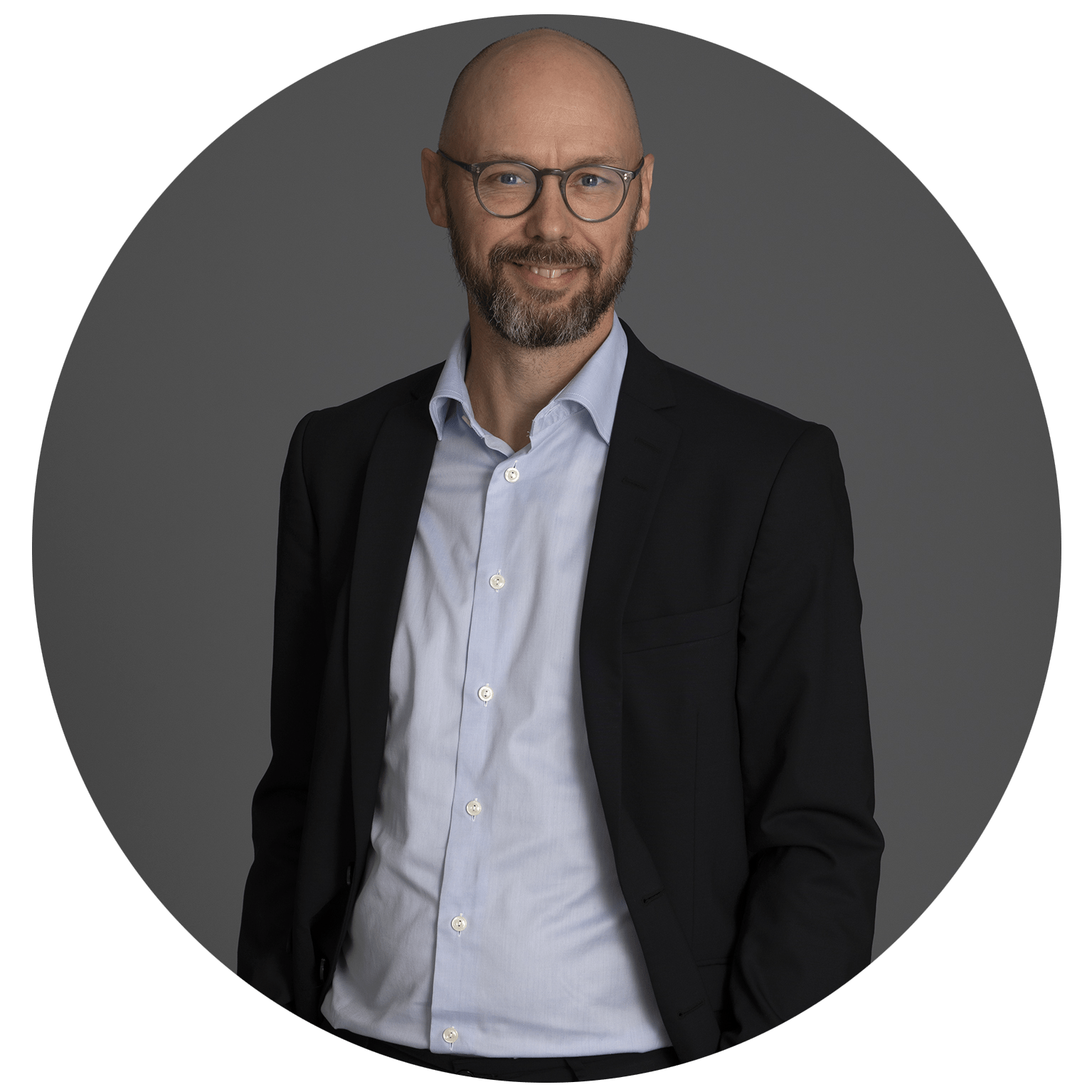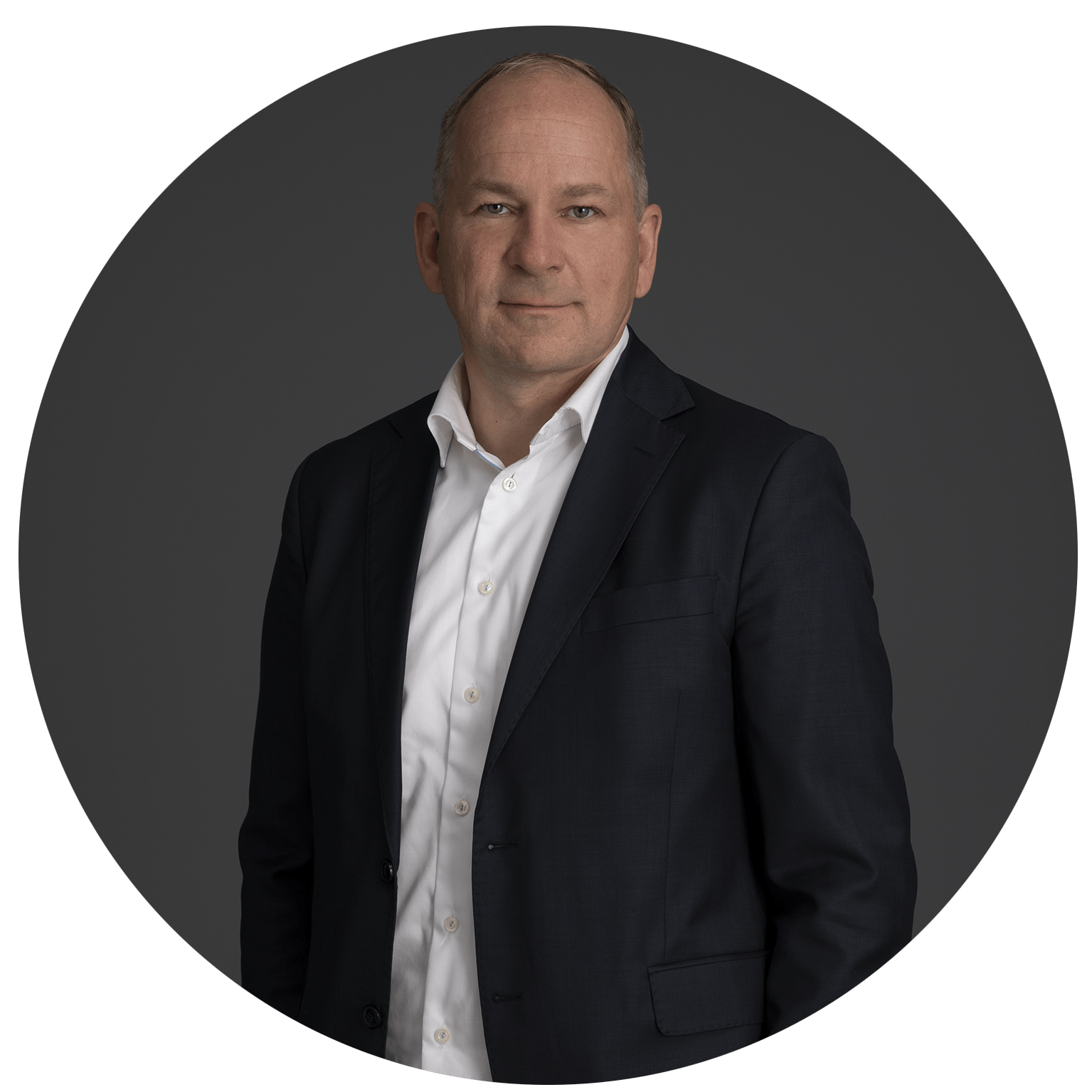Meet the partners of Helix Kapital

Stefan Lambert

Mattias Ericsson

Joakim Karlsson
Argentum (A): Looking back on the past year – what have been the most challenging and what have been the highlights?
– The past year has been marked by several highlights for Helix Kapital, as we reinforced our investment organization by welcoming a couple of very talented new investment professionals. Notably, our second fund experienced two great exits, achieving an impressive average MOIC[1] of 4.6X. Moreover, we are pleased to announce the successful closure of our third fund, hitting its hard-cap[2] during the fundraising process.
– On the other hand, the year also presented us with a significant challenge: Navigating the complexities of managing portfolio companies and acquisitions during the current economic downturn. However, we have consistently focused on investments in non-cyclical industries. As a result, our portfolio has demonstrated stability, even in the face of a weakening economy.
A: Given the current market conditions, how would you characterize the fundraising market? And how was your fundraising experience midst these conditions?
– It has undoubtedly been a challenging fundraising market, with Bain & Co reporting a global decline in private equity fundraising of around 30 percent. In Europe, many traditional fund of funds, which would have supported smaller firms like ours, have faced their own fundraising struggles and are increasingly focusing on direct co-investments and secondaries.
– Despite these challenges, our fundraising has been successful, and we have been considerably oversubscribed. Evidently, many investors appreciate our thematic small-cap investment strategy, but the success is also down to considerable effort and resources dedicated to fundraising combined with consistently strong performance from previous funds.
Looking back at two successful exits
A: You exited two portfolio companies during 2023 – Heda Security and Holms Attachments, despite a challenging exit-market – what was your experience with those two exits?
– The exit processes for Heda Security and Holms Attachments were both very competitive and successful despite a challenging market, marked by a continual decline in M&A activity. In the fall of 2022, we initially had concerns regarding buyer access to debt. However, this proved to be unfounded, as potential buyers encountered no significant obstacles in securing the necessary funding for their offers.
– We believe that the fact that both Heda Security and Holms Attachments have strategically maintained limited cyclical exposure and their performance is fueled by solid long-term growth trends, provided a crucial advantage during the exit processes. Despite the prevailing weak market sentiment, both assets attracted substantial interest, especially from financial sponsors.
Enthusiastic about opportunities ahead
A: What are your expectations for 2024? What do you believe will characterize the year?
– We are enthusiastic about the opportunities that lie ahead in 2024. With our third fund established and a strengthened investment organization, we are well-positioned to capitalize on opportunities in the market. We have a solid pipeline of proprietary deals, and we are eager to dig into these opportunities throughout the coming year.
– In addition to our internal developments, we are observing the broader economic landscape, and we anticipate and hope to see signs of an economic recovery. This macroeconomic factor will significantly influence our investment decisions and portfolio management strategies.
– As we move forward, our focus remains on cultivating value in non-cyclical industries and leveraging solid, long-term growth trends. Adapting to the evolving market conditions, embracing innovation, and maintaining a disciplined approach to investments will be pivotal for our success in 2024.
A: What type of sectors do you believe will be more attractive in the years to come?
– We believe that the ICT and industry sectors will continue to capture attention due to their resilience, growth potential, and the ongoing digital transformation across industries. The digitalization of processes, advancements in technology, and the increasing interconnectivity of industries currently make these sectors particularly compelling for investment.
– Moreover, we are firmly convinced that industrial innovation and productivity improvements will play an instrumental role in shaping future investment landscapes. Companies at the forefront of adopting innovative technologies to enhance efficiency and productivity in traditional industries are expected to draw heightened interest from investors. In addition, we think that the ongoing emphasis on sustainability and environmental considerations further underscores the importance of sectors that contribute to industrial innovation and responsible practices.

Growth is fundamental – an increased focus on ESG considerations
With a tenure in the industry since 2008, Helix Kapital is an experienced player in the Nordic region. Their expertise lies in driving growth and profitability in their portfolio. As we delve into the final questions of the interview, we will explore how Helix Kapital manages to achieve success in their investments, what they look for in new opportunities, and how they incorporate ESG factors into their decision-making process.
A: What is your strategy when searching for new investments?
– We place a significant emphasis on outbound sourcing and bilateral processes, steering clear of contested auctions. This approach allows us to cultivate meaningful relationships with ambitious entrepreneurs and ensures a more in-depth understanding of their business models.
– In our pursuit of new investments, we focus entirely on companies that fit into our established investment themes. These themes, namely industrial innovation, sustainable developments, and digital transformation, serve as guiding principles that steer our investment decisions.
– By adhering to outbound sourcing, bilateral processes, and a thematic focus on industrial innovation, sustainable developments, and digital transformation, we believe we can identify investment opportunities that not only align with our strategic vision but also have the potential to create substantial value for our investors.
A: What is your approach to drive profitability and growth in your portfolio companies?
– Our view is that growth is fundamental for the success of our investments. We employ an approach that emphasizes both organic and acquired growth avenues.
– As part of our thematic investment strategy, we deliberately seek out companies that operate in niche industries with long-term market growth expectations that significantly surpass GDP growth rates. This selection criteria sets a solid foundation for additional growth initiatives.
– In essence, our commitment to investing in niche industries with robust long-term growth expectations, coupled with a dual focus on organic and acquired growth, positions our portfolio companies for sustained success and profitability in the dynamic business landscape.
We believe that companies can build long-term competitive advantages by addressing sustainability challenges through their business models
A: How do you integrate ESG factors into your investment decision-making process? How has this approach evolved over the past years?
– At Helix Kapital, ESG considerations are integrated both in our pre-investment processes and during our ownership period. When Helix Kapital screens new investment opportunities, we incorporate ESG factors into the evaluation by using industry best practice.
– A focus on ESG factors have been included in our investment process since the inception of the firm and is in line with our ambition to building better, larger, and more valuable businesses out of quality small-cap companies. ESG risk management is naturally an important component of this, helping to identify areas that could negatively affect value creation. At the same time, we also put emphasize on the opportunity part of the equation. We believe that companies can build long-term competitive advantage by addressing sustainability challenges through their business models.
– Our focus on ESG has increased gradually and the third fund is classified according to SFDR under article 8.
[1] MOIC stands for «Multiple on Invested Capital”, and is a measure used to evaluate the return on investment in a private equity deal. MOIC represents the ratio of the total value realized from an investment to the total amount of capital invested in, for instance, a portfolio company.
[2] Hard-cap refers to the maximum limit set on the amount of capital that a private equity fund intends to raise from investors.
